10 Rappers That Died in a Car Accident Funny
Rappers Who Died Tragically
Developed as danceable house party music in 1970s New York, rap and hip-hop evolved into a vital, visceral, and expressive form of musical storytelling. The beats may be inspired by disco, soul, and funk, but the lyrical content to rap is more akin to balladry or folk — the best rappers are usually the ones who tell deeply personal stories about what it feels like to be a young American in the 20th or 21st century, with an emphasis on struggles, setbacks, and triumphs. Groups like Public Enemy and N.W.A. made hip-hop a place where real social issues were discussed and one that highlighted how just getting by was often a matter of life and death.
The world of rap has been particularly struck by tragedy, seemingly disproportionately more so than other forms of entertainment. Too many rappers have died too early, at the peak of their fame and influence, before they ever got a chance to get old. Here are some major pioneers and luminaries of hip-hop who died too soon, via especially tragic circumstances.
The Notorious B.I.G.
The Notorious B.I.G., aka Biggie Smalls, aka Christopher Wallace, was by far the dominant figure of the 1990s East Coast rap world. His two (sadly prophetically titled) studio albums, 1994's "Ready to Die" and 1997's "Life After Death," sold many millions of copies and rank among the most acclaimed hip-hop albums of all time. Biggie had a hypnotic, eloquent, inimitable flow which brought to life many canonical, catchy, and catchphrase-generating smashes like "Juicy," "Big Poppa," "Hypnotize," and "Mo Money Mo Problems," which is to say nothing of his work with Junior M.A.F.I.A. and star-making affiliation with close friend and producer Sean "Puff Daddy" Combs.
After leaving a music industry event in the early hours of March 9, 1997, according to CNN, Wallace rode in the passenger seat of a Chevrolet Suburban when another vehicle drove up and opened fire. While no one was ever arrested or held accountable for the death, the Los Angeles County Coroner's Office released an autopsy 15 years later. According to the document, Wallace was shot four times, with bullets entering his left thigh, back, and left arm. The bullet that killed him entered through his right hip and punctured his heart, liver, and lung. When Wallace arrived at Cedars-Sinai Medical Center, he was suffering a cardiac arrest event related to the shooting trauma and was soon pronounced dead. The Notorious B.I.G. was just 24 years old.
Tupac Shakur
In the '90s, the East Coast had Biggie Smalls, while the West Coast's biggest star was Tupac Shakur, who performed under the name 2Pac. After cutting his teeth with Digital Underground, 2Pac went solo, releasing the albums "2Pacalypse Now" and "Strictly 4 My N.***A.Z.," which showcased not only his guttural voice and tough point of view (masking an undeniable vulnerability) but his versatility. 2Pac could rap sensitively on "Keep Ya Head Up," lasciviously on "I Get Around," or socially consciously on "Brenda's Got a Baby." Shakur released tons of music but expressed himself with acting, too, appearing in movies like "Juice," "Above the Rim," and "Poetic Justice."
According to Biography, on September 7, 1996, Shakur went to Las Vegas to see boxer Mike Tyson fight Bruce Seldon at the MGM Grand. After a scuffle with a gang member in the casino, he got into a BMW with Death Row Records boss Suge Knight. On the way to a club where 2Pac was to perform, a white Cadillac pulled up alongside the BMW, and a still-unknown assailant fired 13 rounds into the car — four hit Shakur. At a local hospital, the rapper endured several lifesaving surgeries, including the removal of a badly damaged lung, and was placed on a ventilator and respirator. After a brief resuscitation, Shakur succumbed to his injuries and died six days later. He was 25.
Nipsey Hussle
After hip-hop ventured into psychological, introspective territory in the 2000s thanks to Eminem, Kanye West, and Kendrick Lamar, Nipsey Hussle brought back a lot of what made gangsta rap so captivating in the '90s. A former member of the Rolling Sixty Crips gang in Los Angeles, he documented and worked through those experiences on a slew of mixtapes (such as the particularly well-received "The Marathon"), a couple dozen singles, and just one studio album: "Victory Lap," a platinum-seller and Grammy nominee for Best Rap album.
Hussle was just as devoted to ending L.A.'s violent street culture as he was to documenting it. According to Forbes,the rapper owned a strip mall located in the somewhat rough Crenshaw Boulevard area where he'd grown up, and he had plans to build homes and stores to reinvigorate and change the area. The area was home to Marathon, Hussle's clothing store, and while he was standing outside the store one day in March 2019, a man walked up and shot him to death. The rapper and anti-violence advocate was 33.
Eazy-E
Just when rap was earning mainstream appeal and acceptance via talented but widely palatable '80s acts like Run-DMC and D.J. Jazzy Jeff and the Fresh Prince, along came N.W.A. The group virtually invented gangsta rap, a subgenre that detailed the shocking and often violent world of inner-city Los Angeles, in which the group's members were born and raised. N.W.A. brought a new kind of storytelling and point of view to popular music with albums like "Straight Outta Compton" and also launched its members to stardom, particularly Dr. Dre, Ice Cube, and Eazy-E. Otherwise known as Eric Wright, the gang member-turned-musician possessed N.W.A.'s most distinctive voice, spiritually and literally, contributing to rap milestones like "F**k tha Police," "Gangsta Gangsta," and "Boyz-n-the-Hood." After an ugly feud split up N.W.A., Eazy-E embarked on a very successful solo career.
In February 1995, UPI reported that Wright, who'd long suffered from asthma, had checked into the intensive care unit of Los Angeles' Cedars-Sinai Medical Hospital, assuming he was suffering from that medical condition. His problems weren't asthma-related, however — doctors diagnosed the formerly sturdy but noticeably slight rapper with AIDS. Ten days later, complications from the horrific disease took his life. Eazy-E was 30.
Mac Miller
In 2010, Mac Miller made an auspicious debut with the non-ironically titled mixtape "K.I.D.S." – he was just 18 at the time. That spawned the hit "Knock Knock," and in the following year, his first studio album proper, "Blue Slide Park," topped the Billboard album chart. For the rest of the decade, Miller was among the most popular and prolific voices in hip-hop, producing for other rappers, starring on the TV series "Mac Miller and the Most Dope Family," and releasing four more albums and many memorable singles such as "Self Care," "Donald Trump," "Loud," "S.D.S.," and "The Way," a smash-hit collaboration with his romantic partner at the time, Ariana Grande.
On September 7, 2018, according to TMZ, a friend found Miller in his home in California's San Fernando Valley. Paramedics arrived to address what was believed to be a cardiac arrest and pronounced the rapper dead at the scene. A toxicology report from the Los Angeles County Coroner ruled that Miller, who had also endured blunt force trauma to his head and injuries to his nose, died from an accidental overdose of cocaine, alcohol, and the powerful painkiller fentanyl. The rapper had struggled with addictions in the past, which sadly led to his death at age 26.
If you or anyone you know is struggling with addiction issues, help is available. Visit the Substance Abuse and Mental Health Services Administration website or contact SAMHSA's National Helpline at 1-800-662-HELP (4357).
Lisa "Left Eye" Lopes
There were a lot of pop-savvy R&B trios in the '90s, but TLC stood out from the rest because each of its members had a distinct, memorable, and charismatic personality. The "L" in TLC was Lisa "Left Eye" Lopes, the rapping complement to her singing cohorts T-Boz and Chili, so named because her left eye was slightly larger than the right, over which she fashionably wore condoms to promote safer sex practices. Left Eye performed memorable, acrobatic raps on almost all of TLC's many hits, including on "Ain't 2 Proud 2 Beg," "Waterfalls," and "No Scrubs." Outspoken and assertive when not performing, Lopes once got angry with a boyfriend and burned down his house, and on a "Behind the Music"episode, she explainedthe shady and exploitative music industry math that led TLC to bankruptcy, despite selling millions of albums.
According to The New York Times,Lopes maintained a home in rural Honduras and was driving an SUV while visiting the Central American country one day in April 2002. She lost control of the vehicle, and it ran off the road and turned over multiple times, according to local police. There were seven other people in the SUV, including Lopes' two siblings, the R&B trio Egypt, and two producers working on a Lopes documentary. All were treated at a hospital and released, but the accident killed the TLC rapper. Lopes was 30.
Adam Yauch
Back in the early '80s, the Beastie Boys were, as a song would later explain, "three MCs and one DJ" — friends from New York so taken with the city's latest contribution to music that they abandoned their punk rock sound to become a hip-hop group with a hard rock backbone. King Ad-Rock (Adam Horovitz), Mike D (Mike Diamond), and Adam Yauch exposed suburban audiences to rap and, in doing so, became one of the genre's earliest and most successful acts, thanks to meta, humor-laden tracks like "(You Gotta) Fight For Your Right (To Party!)," "Brass Monkey," "Intergalactic," and "Hey Ladies."
After bringing so much fun to rap, Yauch faced something not at all fun in 2009. According to Rolling Stone, he noticed swelling in his throat, which tests revealed to be a cancerous tumor in a salivary gland. The band canceled a slate of concert dates and delayed the release of the album "Hot Sauce Committee, Pt. 1." "I just need to take a little time to get this in check, and then we'll release the record and play some shows," Yauch said in a YouTube video of what is often a very treatable condition. But he didn't recover and was left unable to ever perform live again, appear in any music videos, or attend the Beastie Boys' induction into the Rock and Roll Hall of Fame in April 2012. Just weeks later, Yauch passed away from complications of cancer at age 47.
Heavy D
Born in Jamaica and raised in New York, Dwight Myers took on the stage name Heavy D and, with his group the Boyz, became the first act signed to influential R&B and hip-hop label Uptown Records. With and without the collective, Heavy D scored a slew of top-selling albums and pop radio-friendly rap hits like "Now That We Found Love," "Nuttin' By Love," and "Got Me Waiting" and guested on standout tracks by Janet Jackson ("Alright"), Michael Jackson ("Jam"), and Soul for Real ("Candy Rain"). The rapper did a fair bit of acting, too, making appearances on '90s sitcoms like "A Different World," "Living Single," and "The Fresh Prince of Bel-Air" and scoring a recurring role as the operator of a restaurant frequented by the main characters of "Bones."
In November 2011, according to The New York Times,the self-described "overweight lover" collapsed at his Los Angeles home, and paramedics rushed him to Cedars-Sinai Medical Center. The hitmaker died in the hospital hours later at age 44. A month later, a Los Angeles County Coroner investigation (via The Guardian) revealed the cause of Heavy D's sudden and mysterious death: a pulmonary embolism brought on by deep vein thrombosis. A blood clot had likely formed in his leg during a long-haul flight from London to Los Angeles, and it migrated to a lung, which held back blood flow and put pressure on his heart.
Big Punisher
The raspy and authoritatively voiced Big Punisher was only getting started. After his first verse in 1995 on a couple of Fat Joe tracks, Big Pun released his debut studio LP "Capital Punishment" in 1998, and a year later, he was all over collective Terror Squad's "The Album." Big Punisher had a series of solo smashes like "I'm Not a Player," "It's So Hard," and "How We Roll" and crossed over to pop radio with guest spots on Jennifer Lopez's "Feelin' So Good" and Joe's "Still Not a Player."
Big Punisher, born Christopher Rios, was a large man, his size reflected in his stage name, and that led to what proved to be fatal health problems. According to MTV, the rapper started to rapidly put on weight in his late teens, and press materials claimed he was about 400 pounds. In the summer of 1999, he lost 100 pounds via a Duke University program but left early and returned to old habits, and the weight soon returned. In February 2000, authorities were summoned to his hotel room in White Plains, New York, when the rapper couldn't breathe. He was transferred to a hospital, where he was pronounced dead. Per Westchester County deputy medical examiner Dr. Louis Roh (via MTV), Rios weighed 698 pounds at the time of his death, and his heart had expanded to three times that of a normal, healthy, size. Big Punisher was 28.
ODB
Staten Island's own Wu-Tang Clan is the arguably the greatest collective in rap history, boasting nine full-fledged members who brought their own unique contributions to the enterprise, and is responsible for all-time classics like "Enter the Wu-Tang (36 Chambers)" and "Wu-Tang Forever." Even more so than cohorts Method Man and RZA, Russell Jones, or rather Ol' Dirty B*stard, is likely the most famous Wu-Tang rapper, what with his distinctive vocal range, wild style, and flairs for both the dramatic and comical. Also known by the stage names Dirt McGirt, Osirus, and Big Baby Jesus, ODB shined — and got absolutely filthy and weird — on Wu-Tang standards like "Protect Ya Neck," along with his solo singles like "Got Your Money."
A few days before his 36th birthday in November 2004, according to The Guardian,ODB was at a New York recording studio, working on his fourth solo album "Osirus," when he collapsed outside without warning. By the time medical authorities arrived, the rapper had already died. A few weeks later, the NYC medical examiner (via Rolling Stone) released the results of an autopsy. A toxic combination of cocaine and Tramadol, a prescription painkiller, had caused the colorful musician's heart attack.
Chris Kelly
Discovered in a mall by super-producer Jermaine Dupri, Chris "Mac Daddy" Kelly and Chris "Daddy Mac" Smith, aka Kris Kross, were all of 13 when they topped the Billboard Hot 100 in 1992 with "Jump," a song built on a killer hook and the rapid-fire flow of the very young rappers. Kris Kross scored again with hits like "Warm It Up" and "Alright" before splitting up in 1996, but not before inspiring millions to imitate the duo by wearing their clothes backwards.
On May 1, 2013, per CNN, Kelly was discovered unresponsive at his Atlanta home. Despite a transfer to a local hospital, Kelly passed away later that same day. In July 2013, the Fulton County medical examiner released the results of an autopsy. The rapper had a number of controlled substances in his body, including heroin, cocaine, alcohol, prescription painkillers, and Valium, several of which a friend told police he'd consumed the night before his death. All those things made for a fatal combination, and Kelly died at age 34.
Prodigy
Mobb Deep came onto the scene strong in the '90s with "The Infamous and Hell on Earth," landmarks of both the very fruitful decade for hardcore rap and for the East Coast, New York-based scene in particular. Mobb Deep was a duo, consisting of Havoc (Kejuan Muchita) and Prodigy (Albert Johnson). Affiliated with the influential 50 Cent and his G-Unit collective, Mobb Deep experienced a resurgence in popularity in the mid-2000s, although it was interrupted when Prodigy had to serve a three-year prison sentence for weapons charges. Forever turning his darker experiences into art, Prodigy later published "commissary kitchen: my infamous prison cookbook," a collection of jailhouse recipes, on his own imprint.
According to The Independent,Prodigy was diagnosed as an infant with sickle cell anemia, a painful, chronic disorder where red blood cells take on a crescent shape, which slows down and obstructs blood flow. That can lead to extensive and frequent medical treatment, and Prodigy sought relief during a Las Vegas tour stop in 2017. While under a doctor's care for his sickle cell anemia, Prodigy choked on an egg and died. The Mobb Deep star was 42.
DMX
After the gangsta rap era came and went, and before the rise of Eminem and 50 Cent, there was no rapper more popular with a more indelible impression on hip-hop than DMX. With his distinctively guttural, throaty, and weighty voice that sold the material and conveyed a troubled and conflicted past, the man born Earl Simmons dominated late '90s and early 2000s rap.
DMX was versatile, too, energetically barking his way through anthems ("Party Up" and "X Gon' Give It To Ya" ) to challenges on wax ("Get At Me Dog") to self-assured explorations of culture and identity ("What's My Name" and "Money, Power & Respect"). His albums sold extremely well at his peak, with five DMX records in a row topping the Billboard200 between 1998 and 2003.
According to sources who spoke to TMZ, on the evening of April 2, 2021, DMX overdosed on drugs and suffered a heart attack. Paramedics were called to the rapper's home, and it took around 30 minutes to resuscitate, meaning DMX's brain didn't get any oxygen for that entire time, which can often lead to severe brain damage and brain death. DMX was on life support for nearly a week, at which point no brain function had returned. On April 9, 2021, DMX died at the age of 50.
Pop Smoke
Pop Smoke brought the Brooklyn drill subgenre of hip-hop to the masses. According to The Ringer, the style melds spooky British production techniques with trap beats and often dark lyrics. In 2019, he released his first major project, "Meet the Woo," with the follow-up "Meet the Woo 2" debuting in February 2020 and hitting No. 7 on the Billboard album chart. His star was on the rise, and he'd go on to work with heavy hitters like Travis Scott and Nicki Minaj and also score numerous top 20 singles in 2010 and 2021, including "For The Night," "What You Know About Love," "The Woo," and "Mood Swings."
Sadly, Pop Smoke, born Bashar Jackson, wouldn't live to see much of his phenomenal success. According to The New York Times, the rapper had relocated from New York to a home in Hollywood he rented from "Real Housewives of Beverly Hills" star Teddi Mellencamp. It was there in the early hours of February 19, 2020, that a group of men allegedly broke in and shot the rapper. A few hours later, he died at a local hospital. Pop Smoke was 20 years old. (Per the BBC, three men and two teenagers were later arrested and faced robbery and murder charges.)
Juice WRLD
There weren't many rappers who made a bigger impact on hip-hop in the late 2010s than Jarad Anthony Higgins, more commonly known as Juice WRLD. In 2018, he released his first album, "Goodbye & Good Riddance," and it reached No. 4 on the Billboard album chart while also generating the huge hit singles "Lucid Dreams" and "All the Girls Are the Same." His second studio release, "Death Race for Love," performed even better, cresting the Billboard 200. Juice WRLD was a prolific musician, releasing an additional nine extended plays and two mixtapes, all before he turned 21 years old.
Then, less than a week after he hit that milestone birthday, it was all over for Juice WRLD. According to TMZ, the rapper exited a private plane at Chicago's Midway Airport in December 2019. While walking through the terminal, he suffered a seizure, with blood reportedly coming out of his mouth by the time paramedics could treat him. A few hours later, he was pronounced dead at a hospital. The rapper, whose music was laced with references to his use and abuse of substances, died from an overdose of codeine and oxycodone, according to the Cook County Medical Examiner (per The New York Times).
If you or anyone you know is struggling with addiction issues, help is available. Visit the Substance Abuse and Mental Health Services Administration website or contact SAMHSA's National Helpline at 1-800-662-HELP (4357).
D12's Proof
While he'd find national success as part of a popular rap collective, the rapper who called himself Proof was a local legend in the Detroit rap scene of the 1990s. According to AllMusic, he hosted and competed in rap battles and even won the 1999 "Unsigned Hype" award bestowed by hip-hop magazine The Source. It was in this world that he and Eminem became friends and collaborators, and the latter would later ask Proof (also known as DeShaun Holton) to join his rap collective, D12. He participated on two D12 albums in the 2000s, "Devil's Night" and "D12 World," released the solo record "Searching for Jerry Garcia," and played the role of daunting battle rapper Lil' Tic in Eminem's lightly fictionalized biopic "8 Mile." (The major character of Future, portrayed by Mekhi Phifer, was inspired by Proof.)
In the early hours of April 11, 2006, according to Rolling Stone, a fight broke out at 3C, a club in the Eight Mile area of Detroit. Police arrived at the illegal, after-hours institution after receiving reports of shots fired. According to Billboard, police say that Mario Etheridge fatally shot Proof after the rapper shot and killed Etheridge's cousin after a disagreement over a pool game. Proof was pronounced dead on arrival at a local hospital. He was 32 years old.
Soulja Slim
Raised in the Magnolia Projects of New Orleans, per NOLA.com, James Tapp, Jr., first adopted the stage name Magnolia Slim, and after he changed his name to Soulja Slim, he earned the attention of Master P and his influential No Limit Records. His first LP for that company, "Give It 2 'Em Raw," hit No. 13 on the Billboard album chart.
A few years in prison for armed robbery, according to AllMusic, meant a follow-up wouldn't come quickly, but Soulja Slim reemerged in the 2000s. "Slow Motion," a collaboration with the rapper Juvenile, went all the way to No. 1 on the Billboard Hot 100 in August 2004. Unfortunately, Soulja Slim had no idea that he'd topped the charts. It was released after his death. In November 2003, per WAFB-9, the rapper was shot to death outside of the New Orleans house he'd bought for his mother. He was 26.
J Dilla
The Detroit-based rap trio Slum Village got its big break in 1998 when asked to be the opening act on what was advertised as A Tribe Called Quest's final tour. The breakout star of Slum Village — rapper and producer James Yancey, or Jay Dee, but more prominently known as J Dilla, who had decided to give performance more of a try after having collaborated with major acts in the genre, including De La Soul and Busta Rhymes. After releasing a Slum Village record in 2000, J Dilla went solo with "Welcome 2 Detroit" the following year. Around the turn of the millennium, J Dilla moonlighted as one of the hottest producers in hip-hop and R&B, shepherding Common's "Like Water for Chocolate," D'Angelo's "Voodoo," and projects for Macy Gray and Erykah Badu.
Toward the end of his life, J Dilla suffered from lupus, a painful autoimmune disease characterized by widespread inflammation. He required the use of a wheelchair on some of his final concert dates, and in February 2006, per Billboard, the rapper and producer died from complications of the disease at the age of 32.
Lil Peep
Raised on Long Island by educator parents, Gustav Ahr moved to Los Angeles and in 2015 became one of the first and most vocal voices of the SoundCloud rapper movement. Performing and posting bedroom recordings on the streaming service as Lil Peep, his childhood nickname, the rapper struck a nerve with his extremely personal songs about mental health issues and other sensitive subjects, combining confessional hip-hop with sounds and backing tracks from the worlds of emo and alternative rock. Lil Peep's career would ultimately last only about two years and consist of numerous independently released recordings including the commercial hit "Come Over When You're Sober, Part 1."
On the evening of Nov. 15, 2017, Lil Peep was supposed to perform at a Tucson club called The Rock. He was discovered in his tour bus, and he was pronounced dead on the scene, according to The New York Times. A toxicology report later issued by the Pima County Office of the Medical Examiner (via Pitchfork) would rule that the rapper died from an accidental overdose of the anti-anxiety drug Xanax combined with the powerful prescription painkiller fentanyl. Lil Peep was 21.
Young Dolph
Born in Chicago but raised in South Memphis, according to AllMusic, Young Dolph became a leader and superstar of the emergent Memphis scene by combining hard-edged, visceral, and highly descriptive lyrics with the irresistible, club-ready beats of Southern rap. His mixtapes made him a big deal locally in the 2000s, but by the mid-2010s, Young Dolph was a national sensation, releasing hit albums like "King of Memphis," "Role Model," and "Dum and Dummer," and smash hit singles "100 Shots" and "Major."
On November 17, 2021, according to Fox 13, Young Dolph, born Adolph Robert Thornton, Jr., walked into Makeda's Butter Cookies in his hometown of Memphis, a business he visited regularly and would often promote. But shortly after he arrived, a car drove up to the bakery and two men emerged, brandishing firearms and shooting into the store. Young Dolph was killed in the gunfire. The rapper was 36.
Slim 400
Rapper Slim 400 was raised in Compton, California, and continued on the legacy of that fertile hotbed of '90s gangsta rap, recording compelling story songs about life in the California underbelly. He worked closely with YG, both at 400 Records and Pusha Ink, and released the solo album "BompTTon" in 2021, according to Vibe.
According to TMZ, Slim 400 survived an attack in 2019 in which he was shot nine times while visiting relatives near where he was raised in Compton. Slim 400 (whose real name was Vincent Cohran, according to ABC News) was a fan of slain rapper Young Dolph, and a few weeks after his death, he posted a tribute to the musician on Instagram. Just hours later, Slim 400 was himself gunned down in a drive-by shooting. Inglewood police responded to the sound of gunshots and discovered the rapper, laying in the driveway of a home and suffering from a gunshot wound. He received emergency treatment and was rushed to a hospital, where he died. According to initial police investigations, Slim 400 may have gotten mired in an escalating, violent conflict between two rival Los Angeles area gangs. Slim 400 was 33.
Joe C.
Throughout the 1990s, Michigan-based Kid Rock — and his Twisted Brown Trucker Band of associates — combined the vocal delivery of rap with heavy metal instrumentation to create a new form of music called rap-rock. Kid Rock and company broke into the mainstream in the latter part of the decade with hits like "Bawitdaba" and "Cowboy," and as part of his entourage and backing band, Joe C. both experienced it all and helped make it happen, enjoying featured performances on multiple tracks on record and in concert. The man born Joe Calleja added humor to the proceedings whenever he could, rapping boastfully about the size of his genitalia (per ABC News) or donning wild stage costumes, dressing up like Jimi Hendrix and Jerry Lee Lewis' cousin-bride.
Joe C. was diagnosed with a serious case of Celiac disease as a child, which limited his growth to a height of 3'9" and which required him to take as many as 65 pills daily and undergo kidney dialysis treatments. Days after turning 26, Joe C.'s body was discovered by his mother in her Michigan home.
Fred the Godson
Fred the Godson was a certified rising star of hip-hop in the early 2010s, earning a spot in XXL Magazine's illustrious "Freshman Class" of 2011, according to NPR, along with Meek Mill and Kendrick Lamar. But the man born Frederick Thomas never issued a major-label release; according to Pitchfork, a deal with Def Jam Records fell apart when his champion, Jay-Z, left the company. Nevertheless, he self-released many well-received mixtapes, including "Armageddon" and "City of God." Fred the Godson was quite prolific, releasing four projects between 2017 and 2020, including "Payback" in March 2020.
Just weeks later, Fred the Godson tweeted an image of himself in a hospital room wearing an oxygen mask and hooked up to a ventilator system. It was the early days of the coronavirus pandemic, and the rapper had contracted the viral disease. "I'm in here with this Covid-19 s***! Please keep me in y'all prayers!!!" he wrote. According to Complex, the rapper recovered somewhat, only to fall ill again. He died on April 23, 2020 at the age of 35.
XXXTentacion
According to Vulture, Jahseh Onfroy, better known as XXXTentacion, broke out on the digital hip-hop underground of SoundCloud, releasing a slew of songs and albums on the service in 2014 when he was barely 16 years old. Within three years, he was scoring mainstream hits on the Billboard pop chart, like "Look at Me" and "Jocelyn Flores," with non-SoundCloud albums "17" and "?" hitting No. 2 and No. 1, respectively. His music was urgent and rife with tales of extreme violence and battles with mental illness, according to Rolling Stone.
Off the mic, XXXTentacion's life was arguably even more troubled and violent. In 2016, he assaulted his romantic partner, threatening to cut off her tongue, allegedly because she was singing somebody else's songs. A few months later, he held a knife to that same partner's throat when he suspected infidelity. After she revealed that she was pregnant, XXX beat her, promised to kill her, and locked her in an apartment, which she escaped after two days. The case was never resolved, as XXXTentacion was gunned down in Florida in June 2018. The rapper was 20.
Prince Be
In the early '90s, there was pop-rap, gangsta rap, socially conscious rap, and then there was P.M. Dawn, a New Jersey-based duo made up of brothers Prince Be and DJ Minutemix who defied categorization. Their songs were danceable, but also psychedelic with little bits of rock and soul thrown in, underscoring introspective, even spiritual lyrics delivered by Prince Be (aka Attrel Cordes) in a combination of soulful belting and whispered rapping. The formula worked. In 1991, according to Rolling Stone, P.M. Dawn took "Set Adrift on Memory Bliss" to No. 1 on the Billboard Hot 100, only the third time a rap song had ever topped the chart. The duo saw the top 10 a few more times with similarly spacy hits like "I'd Die Without You" and "Looking Through Patient Eyes."
P.M. Dawn's popularity faded, and the group stopped releasing albums in the late 1990s. Meanwhile, Prince Be's health started to decline. He suffered several complications of living with diabetes for years; in 2005, a stroke paralyzed half of his body, and one of his legs was partially amputated. After a diagnosis of renal kidney disease, he died in a New Jersey hospital in June 2016. Cordes was 46.
Phife Dawg
A Tribe Called Quest were one of the most acclaimed and influential hip hop groups of all time. They helped introduce jazz sampling into rap and eschewed the boastfulness of their peers to look inward and discuss social issues. The trio consisted of DJ Ali Shaheed Muhammad, Q-Tip, and Phife Dawg (Malik Taylor) on now-classics like "Can I Kick It," "I Left My Wallet in El Segundo," "Scenario," and "Award Tour," before breaking up in 1998, according to NPR.
At age 19, in 1990 and just weeks after A Tribe Called Quest released its first album, according to KQED, Phife Dawg was diagnosed with diabetes. He suffered complications from the metabolic disease and spent two years on dialysis treatments awaiting a kidney transplant, which he received in 2008, according to AllHipHop. Phife continued to suffer issues, however, and he needed another kidney in 2013, per the BBC, sending him back into regular dialysis sessions. A Tribe Called Quest reunited in 2015 on "The Tonight Show," and, according to the New York Times, he patched things up with Q-Tip and proposed they quietly record another album. Phife Dawg died at age 45 in March 2016, before "We Got It From Here, Thank You for Your Service" was completed or released.
Source: https://www.grunge.com/230557/rappers-who-died-tragically/
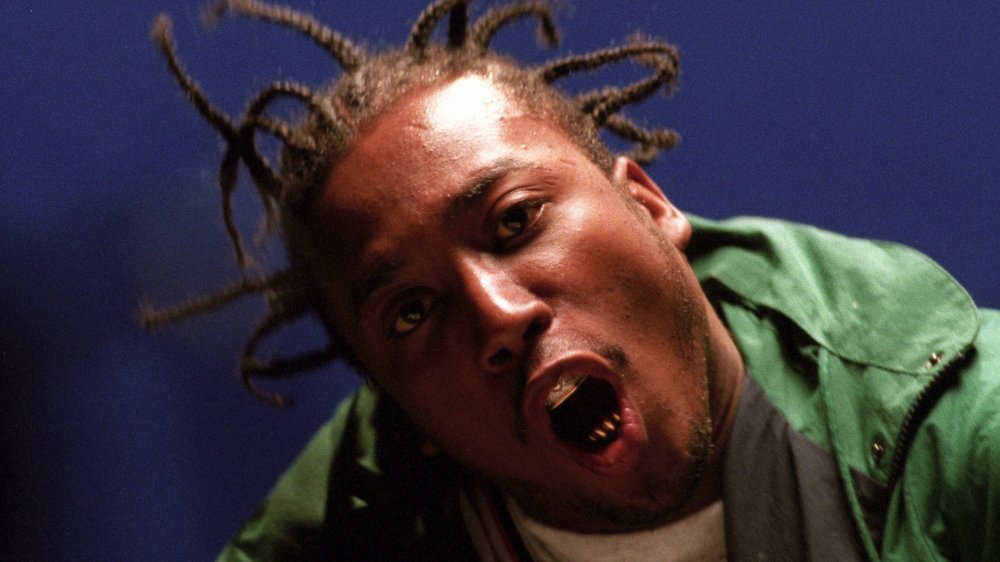
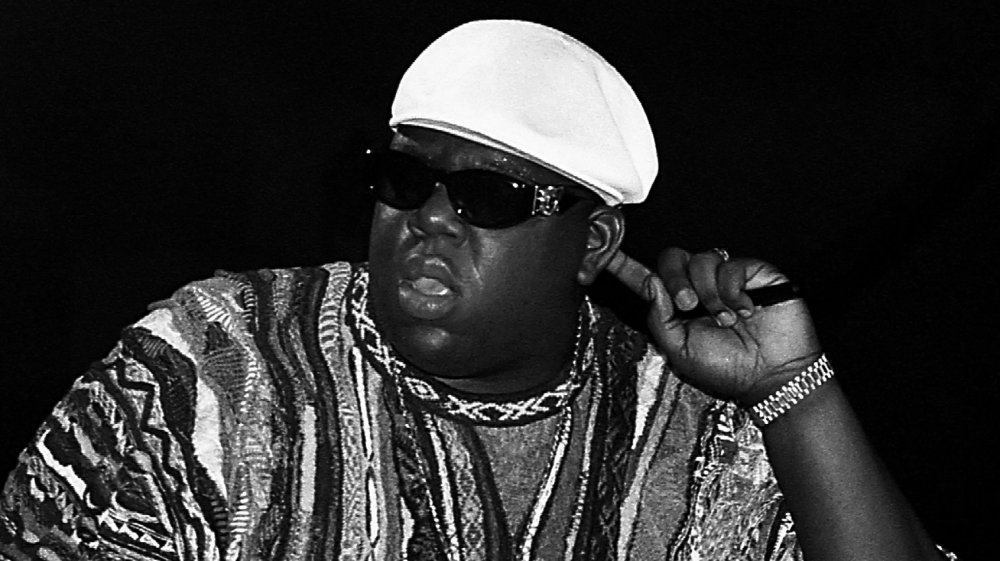
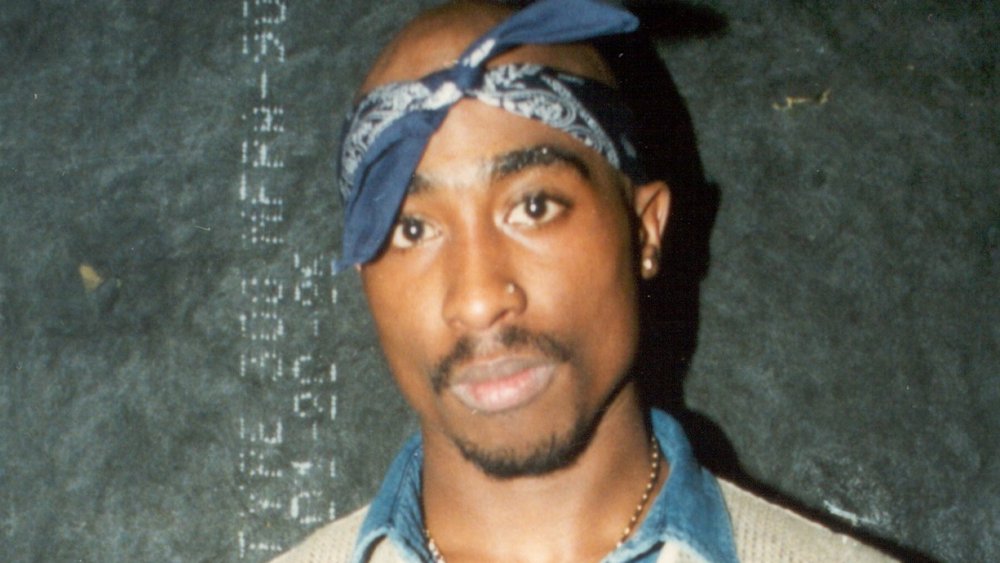
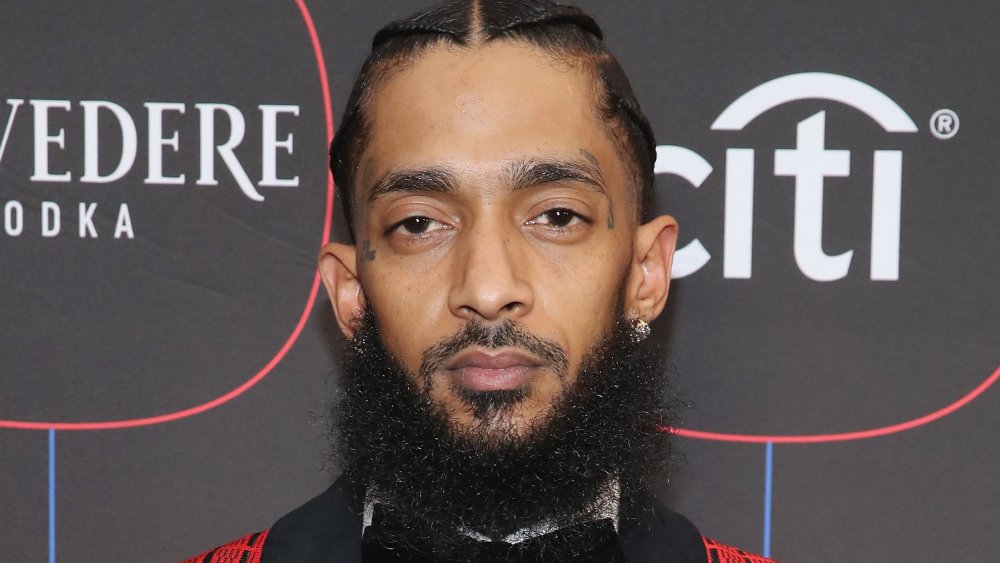
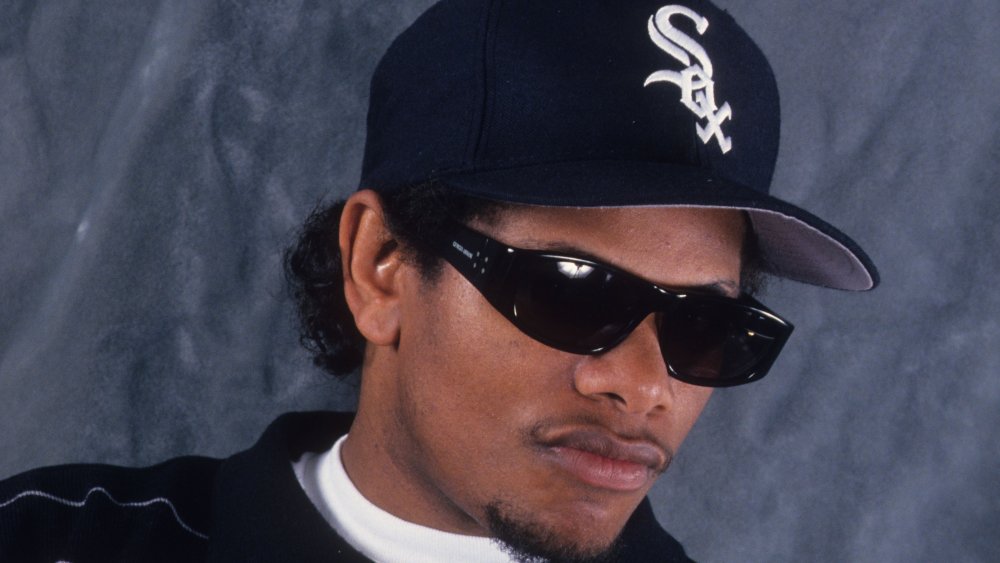
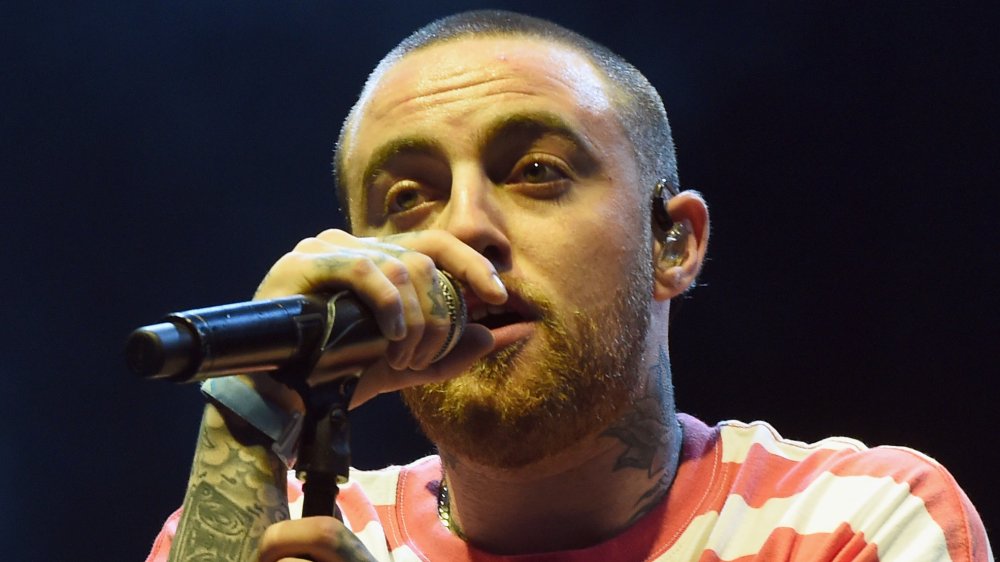

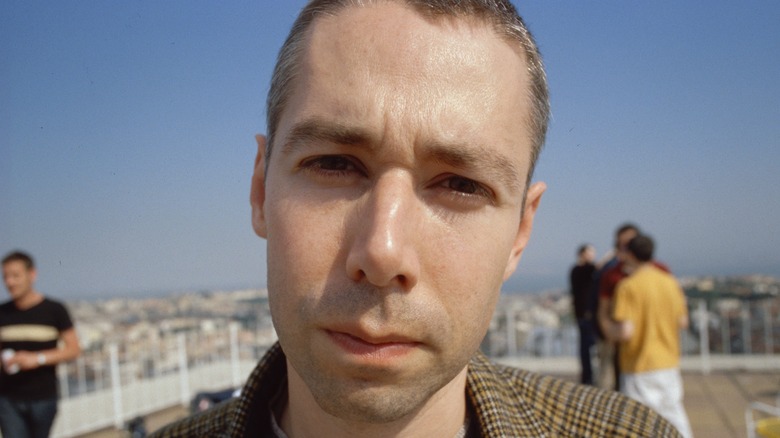
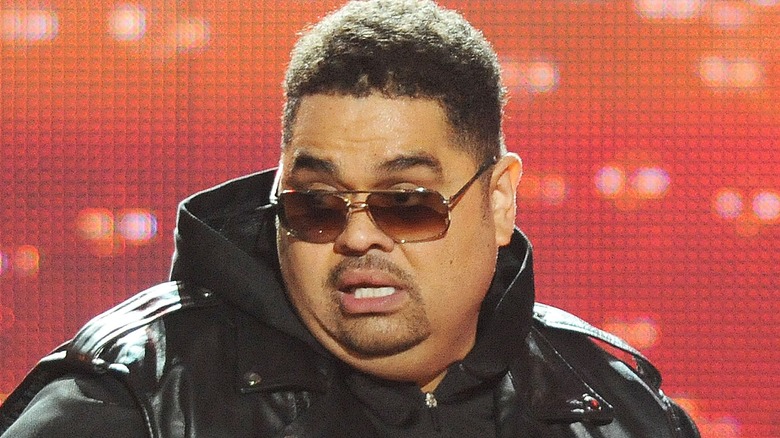
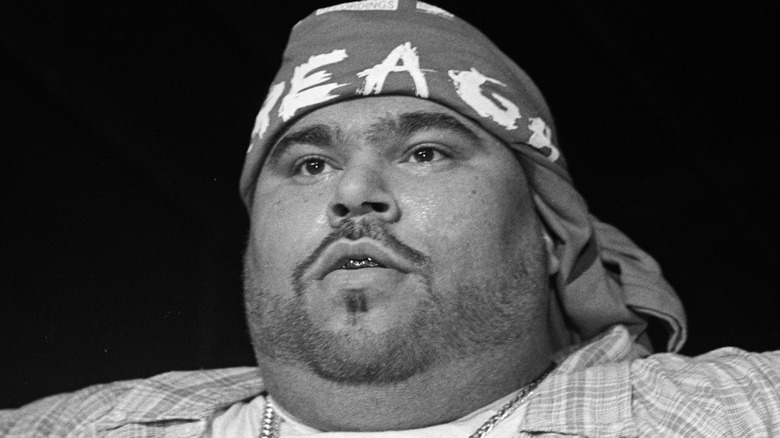
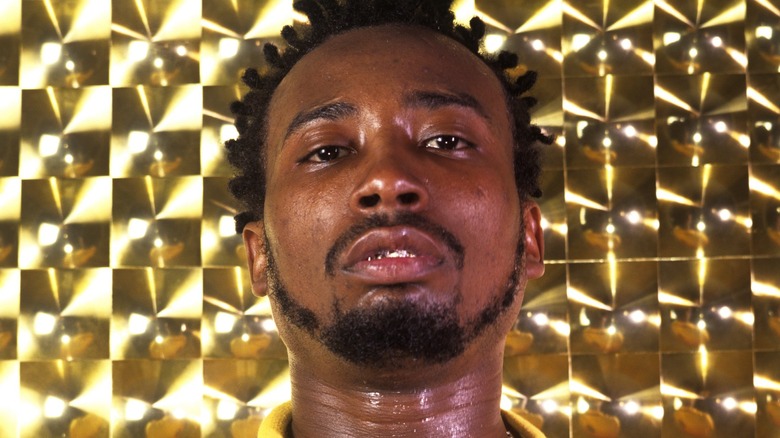
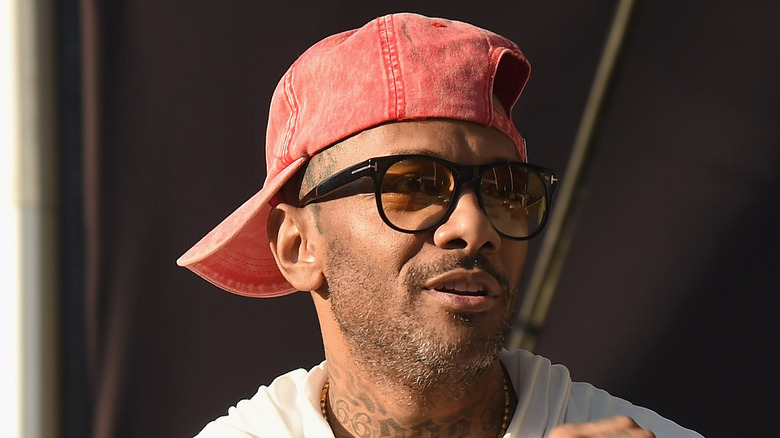
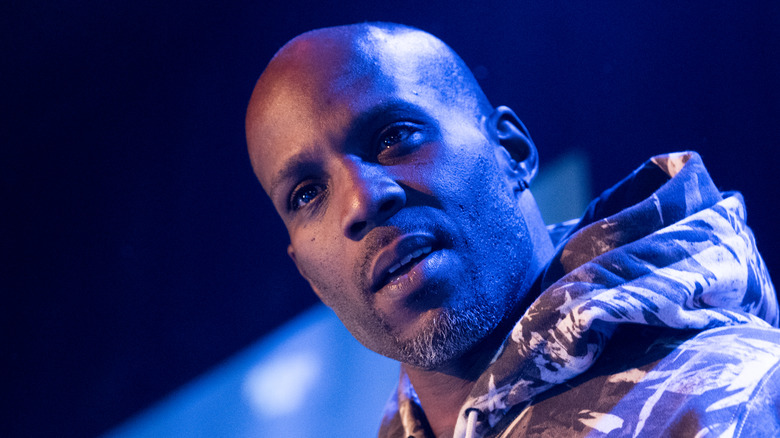
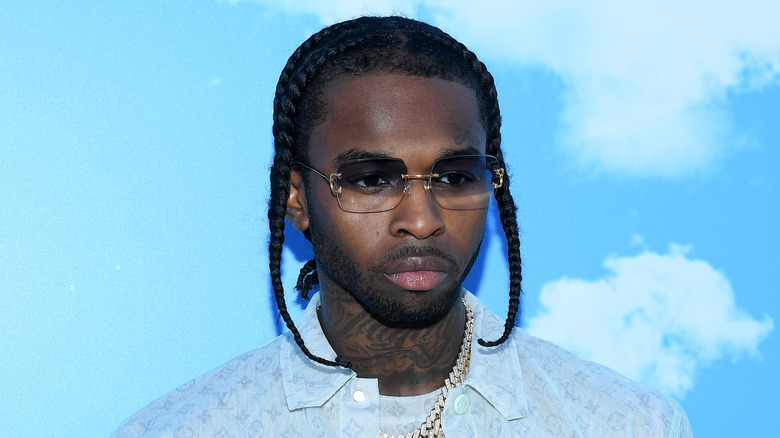
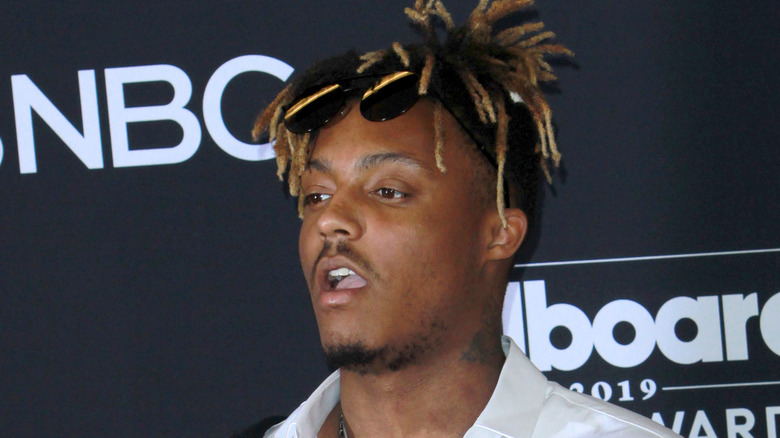

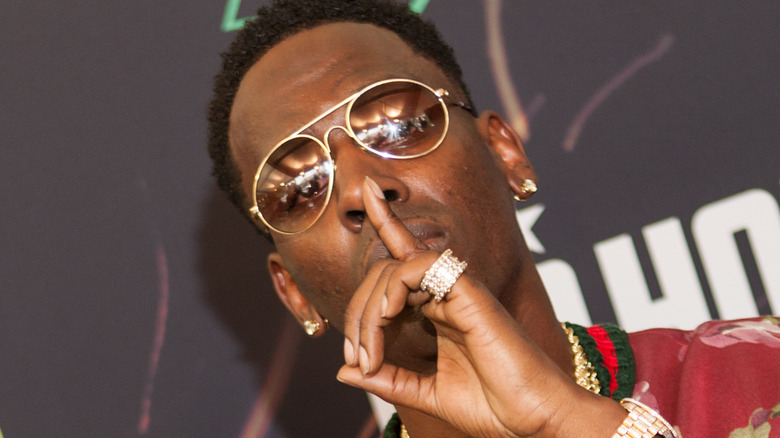

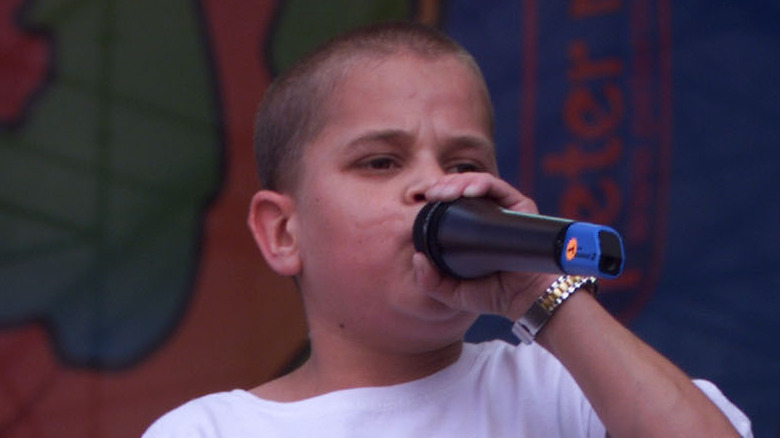
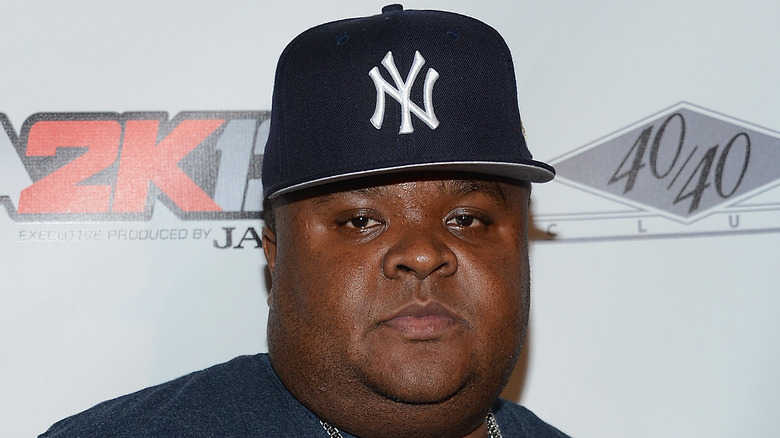
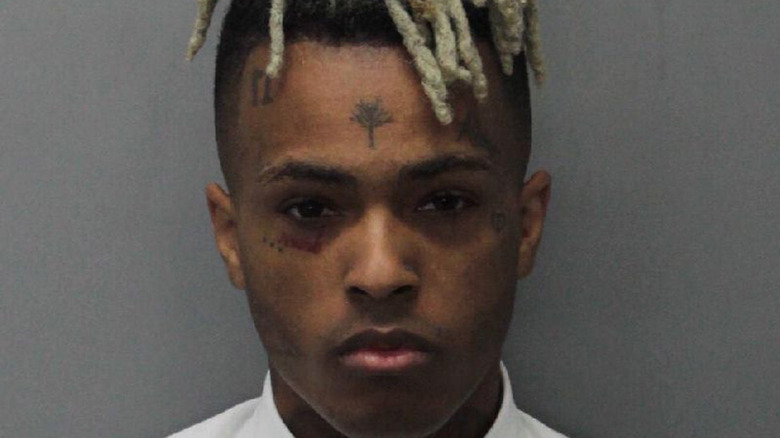
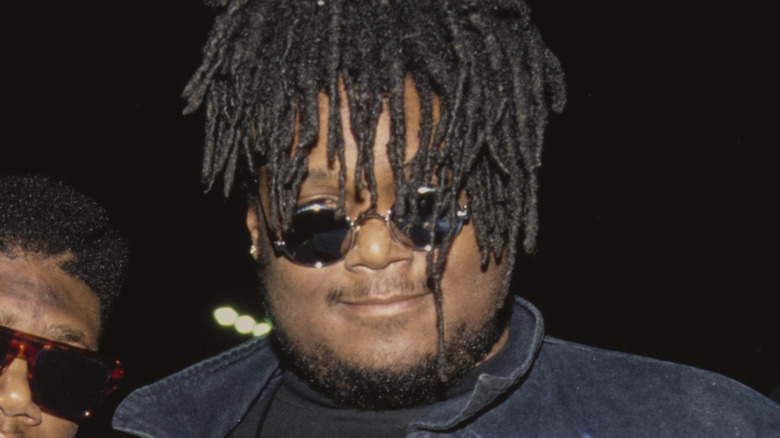
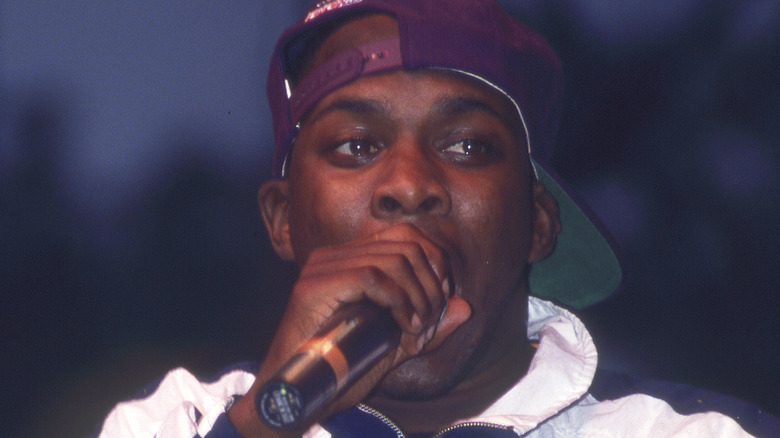
0 Response to "10 Rappers That Died in a Car Accident Funny"
Post a Comment